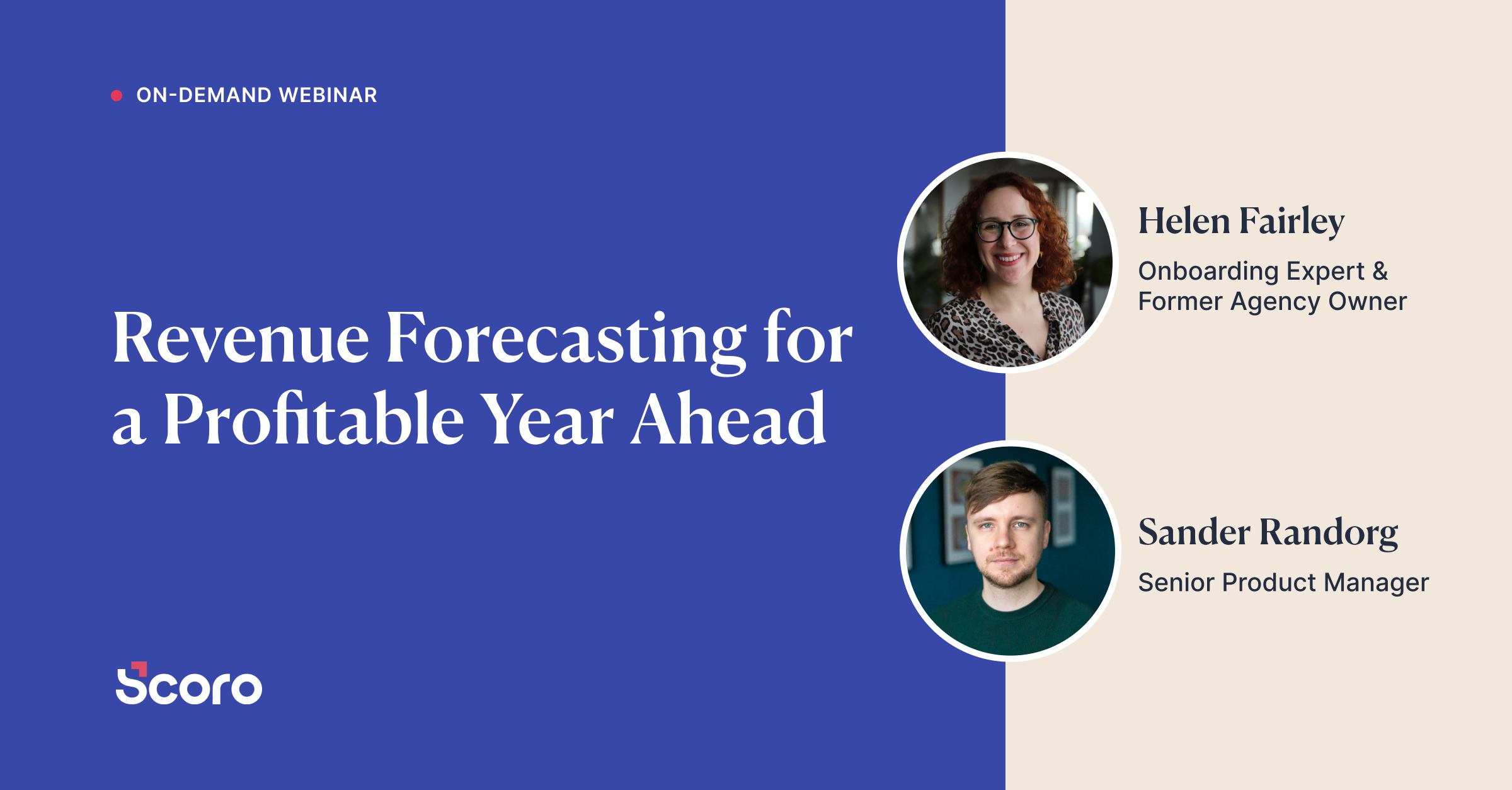How to Plan a Successful Digital Marketing Campaign
When it comes to your business plan, digital marketing is an integral component for any sector. A digital marketing campaign truly forms the core of your promotional efforts and can single-handedly help you establish a solid online presence.
For example, it’s found that companies with a blog generate over 60% more traffic than those without one.
A good digital marketing campaign requires input across your team, from SEO and analytics to social media and metrics, so using project management software is a very effective way to oversee the workflow of the entire process.
At Scoro, we know that no two businesses are the same. However, there are still some basic steps that every business will follow to ensure that everyone involved is aligned when implementing a digital marketing campaign.
What is a Digital Marketing Campaign?
Before we go any further, let’s clear up exactly what a digital marketing campaign is.
On a practical level, digital marketing is an essential way to use online platforms to attract and convert customers.
It can be done by providing information about your products or services for all points down the consumer funnel. If done well, the information and insight you provide into not only your own business but your industry as a whole will allow you to position yourself as a thought leader and a trustworthy voice in your sector.
Businesses can achieve this by putting time and effort into crafting a clear, detailed digital marketing plan, which can determine exactly which marketing tactics should be used to achieve your organization’s strategic objectives. At every step of your campaign, your focus should always remain squarely on your customers’ needs and be able to identify your target market, desired channels, and main competitors.
What to Include in a Digital Marketing Campaign?
Putting together a strong digital marketing plan will enable your business to find the marketing strategies that help build a relevant and impactful online presence. There are six primary steps to creating a digital marketing campaign and, potentially, attaining online greatness if executed strategically:
1. Digital marketing campaign objectives
A digital marketing campaign will usually have a selection of clear and concise objectives to get things off to a good start. Some questions to ask yourself when trying to set these include:
- What are you hoping to achieve from this campaign?
- Who is your main target audience?
- How long are you planning to run your digital marketing campaign?
- How will you measure and determine the success of the campaign?
The more specific you can be at this initial stage, the better. When it comes to your overall aspirations, for example, are you looking to improve your visibility, drive traffic to your website, or convert site visitors into regular customers?
Once you’ve settled on that, you’ll be able to determine exactly which methods will be best suited to help you achieve this, from content marketing to paid social media advertising. Whatever your team decides, you’ll want to discuss the results you want to get out of the campaign in as much detail as you can.
2. Target audience and personas
Your next step should be defining exactly who your campaign will be aimed towards, which will consequently determine the direction of your entire marketing strategy. Digging deep into the data at your disposal, you’ll identify the demographics of your target audience, who will be most likely to engage with your company and, ultimately, become your customers or clients.
Analyzing the best way to reach these people will help you identify their characteristics, preferences, and needs. This can, in turn, give you all the data you need to create buyer personas – a far more in-depth exploration of your target audience – which can help you to plan your digital marketing campaign even more efficiently.
Determine who your primary consumer base is and tailor each step of your digital marketing campaign to resonate with them.
3. KPI targets
Now that you have established your main campaign goals and defined your target market, the next step is to set the benchmarks to determine exactly what you want to get out of the campaign.
Defining clear KPIs for your digital marketing campaign will allow you to track your progress and measure your success on your terms.
KPIs (key performance indicators) are quantifiable metrics that are chosen to align with the specific goals of your digital marketing campaign. They can measure everything from click-through rates – the number of people who click the link after viewing your ad – and cost per lead to returning visitors and all-important online conversion rate.
However, as eager as you might be to track every aspect you can think of, it’s crucial that you narrow your focus and only monitor those relevant to your campaign. It might take some trial and error to decide exactly which KPIs best suit your needs, but once you’ve set them in stone, they’ll provide an all-important guiding light for the campaign going forward.
4. Market research
Market research is an integral part of any digital marketing campaign, as it allows your company to understand everything it needs to know about your
- target audience
- competitors
- wider landscape of your industry.
This is especially invaluable in a world where consumer demands are amplified through social media, particularly with businesses expected to respond to inquiries online as quickly as possible.
Conducting effective market research allows you to understand your buyers’ desires and their problems and pain points and gives you the chance to continually evolve your service or product to appeal to them.
Keep on top of current market trends – as well as what your competitors are doing – and always be alert to what your consumers are looking for.
5. Channels and implementations
You have now reached the stage of your digital marketing campaign where it’s time to think about how best to put all of your ideas into action. This means finding the right platforms for the job, and getting tracking and analytics in place to monitor performance on all of them.
As with all steps of your campaign, you should be sure to keep your target audience in mind at all times. If you’re devising a social media campaign, for example, you’ll need to know which platform your customers are most likely to use and develop your social strategy accordingly.
6. Reports, measurements, and metrics
There’s no point taking all this time to put a digital marketing campaign together without working out how best to assess whether or not it’s been successful, and how it can be improved month on month. You’ll have already worked out your relevant KPIs, so these will provide you with a good benchmark for determining whether or not you’ve met your goals.
One of the best things about a digital marketing campaign is that it can be measured in real time. This means if something isn’t working as expected, it can instantly be identified and improved upon, courtesy of the constant influx of new data at your disposal for you to learn from. In no time at all, your digital marketing campaign will have evolved to produce the best results possible.
If done correctly, a digital marketing campaign can have incredible results for your company, completely transforming your business as a whole.
Creating an engaging online presence is one of the few ways to thrive in our digital world and reach a huge number of consumers while staying relevant and growing your revenue significantly. Through a steady stream of well-researched content across a range of platforms, you’ll be able to take your brand awareness to dizzying new heights.


